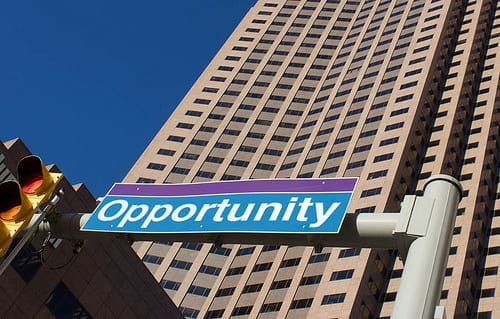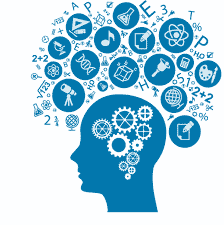An educational leader with a lifetime of focus on the individual student A Mind Rocket Media Group Interview
 Dr. Marilyn Denison wanted to be in education from a very young age and followed her lifelong passion for teaching through college into the classroom.
Dr. Marilyn Denison wanted to be in education from a very young age and followed her lifelong passion for teaching through college into the classroom.
Whether as a teacher, assistant principal, or principal, her focus has always been on individualized instruction. Marilyn knew from her own experiences that all students were different, and the most effective way to educate, even while performing the state-mandated standardized assessments, was through personalization.
Marilyn has fulfilled a variety of roles at the classroom, building, and district level. Most recently, she was asked to be Assistant Superintendent for Transformation and Strategic Initiatives at her district, Coppell Independent School District in Texas. The district is a member of the Texas Performance Assessment Consortium (TPAC) and Marilyn’s new role will allow her to work on transforming education with a focus on individualized student learning.
Interview Transcript:
Mind Rocket: Marilyn, it’s really nice to be spending some time with you today. It was great to meet you at TPAC. For the audience; you’ve noticed that I’ve been paying attention to these discussions around accountability systems that districts and states are examining and looking at.
I had the privilege of attending the Texas Performance Assessment Consortium a few weeks ago, and I met Marilyn there.
Marilyn, I know that your title is Assistant Superintendent for Transformation and Strategic Initiatives in the district. I’m so interested in the transformation piece of that. But I want to rewind a little bit and understand, from your perspective, your own personal journey in education ─ how that shaped and molded you into the person you are now, the person who is doing this type of work on a day-to-day basis. Obviously, you have the skill sets to be doing lots of different things. You chose, though, to personally and professionally give back to education in a way that can transform lives of children and educators.
Share a little bit about your journey in education and how it got you here today.
Dr. Marilyn Denison: Certainly! First of all, it was a pleasure meeting you as well at the TPAC meeting. I’d like to share a little bit about my journey. It really started a long, long time ago. I’ve always been interested in education. Being a teacher was something that I was interested in at a young age, and I was able to follow my passion through college and became an educator.
My passion as a teacher was to individualize learning for each student and to find out what makes somebody interested in learning or even passionate about learning ─ and that has followed me through my whole career.
I then became an assistant principal and principal. I was very passionate at the building level to help educators find that in their students. And so, my journey was really not to do the status quo of education but to really look at the individuals and the students as a whole and provide all the means for the education for a student that way.
Then, I opened up a campus. My superintendent was really passionate about what I was doing at the campus level, so he brought me to the central office so that I could impact more principals and buildings through that journey. And then, I became the assistant superintendent of Curriculum and Instruction at Coppell. Recently, they moved me to Transformation and Strategic Initiatives so that I can focus more on continuing to transform education and, again, focus on individualized learning.
Mind Rocket: Let’s take a look back. From a professional perspective, when did you first recognize the opportunity that education brought you?
I think one of the things that we are challenged as an industry is communicating all the different, interesting, and valuable positions available to young people who are thinking about education in some form of their own professional lives.
You’ve had a very interesting path. There are others who have taken a similar path. But at what point did you recognize that there was opportunity beyond sort of that linear path that, I think, a lot of people in public think which is that you’re either a teacher or you’re an administrator?
 MD: I think some of the opportunities opened up for me because others saw a passion in me and the strength in me. I’m not sure that I really set out to become who I am today. I’ve allowed the journey to influence the direction that I was going. And I believe it was because I saw education a little differently than a typical teacher when you first start teaching.
MD: I think some of the opportunities opened up for me because others saw a passion in me and the strength in me. I’m not sure that I really set out to become who I am today. I’ve allowed the journey to influence the direction that I was going. And I believe it was because I saw education a little differently than a typical teacher when you first start teaching.
I learned differently as a child. And so, I wanted to make sure that I was tapping into students differently so that each child will have that opportunity and not teach to the middle of the class.
As an educator, as a teacher, I started out looking at each individual and finding out their talents, interests, and their passions and teaching to that individual and not to the whole class. And because of that, others saw that strength in me, and they wanted to continue to impact more people.
And so, I was always asked. I was asked to become a principal. I was asked to become an executive director. Those were different journeys for me because others saw the strength and asked me to continue the journey that way.
Mind Rocket: Being asked ─ I love that. I think it’s very interesting. And it’s powerful to think about the role others play in our own professional paths, especially in education and recognizing talent.
How have you changed as a person ─ just from a personal perspective ─ with the different levels of achievement that you’ve embarked on in education?
MD: As I continue to grow in my profession, I’ve always looked back and realized that I could have done a better job at each level because you continue to learn with a broader perspective in your job and in your roles and responsibilities. But it’s also in knowing that we’re never done in education and that education continues to change because our life around us changes.
Education tends to be the slower moving institution. And so, I’m looking at what was happening beyond ─ at our world, in our society ─ that we can help students be prepared for that and not just what we’ve done in our past.
I think I’m more influenced by what’s going on around us. Those people who have continued to ask me to take new roles continue to take risks on me by allowing me to look at education differently.
Mind Rocket: It’s a nice place to be when you’re allowed that space to reflect and learn from your path.
MD: Absolutely!
Mind Rocket: Let’s turn to looking at strategies and transformation. I think this area is very interesting because as we look at what some call “reforms” and what some call “change,” it just iterates through the process of educating youngsters. I think we’ve taken a different look at the ways in which we think about parent engagement, formative assessment, and personalized learning.
Out of those three, is there one that is highlighted for you?
Those seem to be the ones that keep popping up in the discussions I’m having. When I think about it, it gets down to documenting the learning that’s going on in a way we can learn ─ to your point earlier about reflecting ─ but also making the student a part of the process. And I think that that’s a real key today.
 MD: You’re speaking my language when you’re stating it that way. I am about personalized learning and students being responsible for their learning, but I’m also for setting up the environment for that.
MD: You’re speaking my language when you’re stating it that way. I am about personalized learning and students being responsible for their learning, but I’m also for setting up the environment for that.
Sometimes, it’s hard for educators… and I mean principals, everybody… to step back and really allow the students to take that learning on their own, to make mistakes, and learn from their mistakes because those are the most powerful tools ─ our mistakes ─ and do a better job the next time or find new ways to make things work.
I think that’s the way of education in the future. It’s learning how to learn and not learning what we’ve learned from the past only. Learning how to learn is very important. Everybody learns differently so we should allow space for that.
Mind Rocket: Marilyn, we look at personalized learning. If you were asked, what recommendations would you have for a district that is evaluating their personalized learning efforts? What questions can they ask that would help to basically sort of reveal the true players in personalized learning who are doing it in ways that are much more expansive and comprehensive to the individuals we’re talking about ─ these students and the teachers in the room? What questions would you have them ask themselves about their own curriculum?
MD: Personalized learning is probably a pretty common thing to say and a very hard thing to do because educators have so many students they’re responsible for in a day and also a very deep curriculum that they’re responsible for as well.
In Texas, we have so many that they’re responsible for that you can’t get it done in the amount of time. So it’s really talking about asking the questions of what truly is important that students have to know based on the state requirements or the federal requirements. It’s about being very sharp on that.
It’s also asking “How do the environment and the delivery of it impact each student?” And then, “What resources are available to support that learning?”
There are a lot of angles to that. I think there’s so much in education and it’s hard for us to do it alone. I think, sometimes, there are outside resources that we need to look at. So it may even be a question of “What’s available outside of the education world to help support those?”
Mind Rocket: And a follow up to that would be “In evaluating those resources, what questions should they be asking as a leadership team?”
I think there’s a challenge. If we’re only focused on the budget or if we’re only focused on aligning with the current legacy system, that can, then, skew the truth of what we’re really trying to see.
If you take those pieces out and you just say, “Look, if we’re evaluating resource on its own, it’s a little bit of a taste test like the old Pepsi or Coke taste test where they cover it up and you sort of say, ‘What are we really looking at and how do we evaluate whether a resource is something we can learn to grow with as a part of the student’s life cycle or something that is going to be a challenge because it is brand new and it hasn’t really been tested?’”
So help us understand that from a way in which you might evaluate it.
 MD: Of course, you always have to have the budget questions or the evaluative piece to that. I wish we didn’t have to drive with the budget, but we do because we have to be real.
MD: Of course, you always have to have the budget questions or the evaluative piece to that. I wish we didn’t have to drive with the budget, but we do because we have to be real.
There are so many resources out there. We can become overwhelmed with a number of resources, and each one resource might do one thing well.
So my investigation is more about what can pool our work together and bring it to more of a one-stop-shop type thing that surrounds the whole child ─ not only the whole child but the whole education family or anybody the child is going to be working with including the family members. Whoever surrounds that child, how can we all work smarter together, not necessarily harder?
It’s not the number of resources, but it’s the resource that can bring all of that together and give true accurate data. True, accurate resources based on the individual; and it’s also the ability to work within that child’s learning style and interest so that it keeps that child engaged in their work.
Mind Rocket: I appreciate you saying “engaged in their work.” Let’s dive a little deeper. Let’s go to the formative assessment piece and really tie that to what you were just saying to accountability systems. How we met was under a discussion around community-based accountability systems and whether or not standardized tests should really be the driver or the sole driver in our examination of learning that is taking place or not taking place within a given class or related to a given student.
When you were looking at those variables, how do you ─ in your estimation ─ predict what an accountability system can be if done correctly? Have we even thought about it in those terms?
We’re so caught up in the politics and the mud of the current day that it’s hard to project out as to what it really could look like and how it could impact formative assessment, potential parent engagement, and the student engagement of their learning?
MD: We really don’t like to focus on these state assessments ─ the one-shot-in-accountability ratings and all. We don’t think it’s fair. However, it’s not going to go away. So we want to be able to work with that better.
If we were able to get out of that system like what the high-performance schools consortium tried to do… where we wrote some of those laws to try to get us out of the state testing so that we could prove and show student growth in a different way that was more accurate for a student and more informative to the community than the state accountability tests.
Of course, we didn’t get to do that. But there is such a drive and a desire to do that.
 We all learn differently, and we shouldn’t have to be at one particular level at one given day in time and then be labeled at that. Again, we learn differently, and we’re interested in different ways of learning and different materials of learning.
We all learn differently, and we shouldn’t have to be at one particular level at one given day in time and then be labeled at that. Again, we learn differently, and we’re interested in different ways of learning and different materials of learning.
It would be great if we had that opportunity to really work with individual students and determine what their path is and interest levels are. I keep saying “interest” but that’s a lot of different things ─ interest in what I want to do right now but it may be interest in the future or just traits that I am good at.
Not everybody is good at what I’m good at, and I’m certainly not good at what other people are good at. But we all have strengths, and we should be able to play to that and deal with some of our weaknesses and still grow in those as well.
Formative assessments would be the way to do that ─ to be able to identify where we’re at any given time and where we’re going with that information, with that work, and how deep we can go with that learning.
So formative assessments would be a better way to show growth in a student, keep them engaged in what they need to learn and what they want to learn, and keep them on their learning journey than a one-time high stakes testing.
Mind Rocket: You mentioned “proof” earlier. It makes me wonder. How do we reconcile having to prove ─ it’s almost like we’re in court! We have to prove, we have the burden of proof ─ as educators that what we’re doing is working? In your role, transformation is even in the title; it’s a key piece. How do we reconcile a world where we always have to prove beyond reasonable doubt that we are doing well by our students and that we have crafted a curriculum correctly when we’re trying to also transform the experience knowing that learning is fluid, knowing that technology changes, and that we all learn as we grow?
It seems that those are polar opposites and could pose a challenge to those like yourself in leadership positions who are trying to transform in a world where we’re being called on a carpet in a prove-it-to-me kind of mentality.
MD: I think that’s kind of the world we live in ─ that passed-failed type of mentality that we’ve always grown up with or been exposed to. But if we could get away from pass-fail and talk about “How did I grow this year? What did I master within the last fifty-two weeks?”
I would like to see a school system where we didn’t have grade levels and not be defined by where we’re at by our age, that we have modules of work that once we can show that we have mastered that work in different ways ─ whatever works.
Some people do like a pencil and paper test. Other people like to do it through art. Other people like to do it through a performance.
As long as we can have that mastery level, then, we can move on to some other work. And so, you might see kids graduating much earlier or much later. But that’s okay because that’s important for that child.
I would rather see the ability to master through your work and not be defined by a grade or by age.
Mind Rocket: Marilyn, let’s close with this. Let’s talk a little bit about the business of education and, more specifically, the business of accountability systems. How much does the business side of things or the equation impact the practice in the classroom from your perspective?
 MD: Probably far too much ─ as much as we would prefer to work around it. I think teachers always feel burdened by these high-stakes testing and the accountability and the labels that go with it. They feel such an obligation to really lean towards it. Even though we speak a loud message here in our district to not focus on the test but really focus on transformational practices and look at the future and prepare kids for their future, not our past ─ and we really work on that ─ but teachers are still feeling a little bit trapped in that.
MD: Probably far too much ─ as much as we would prefer to work around it. I think teachers always feel burdened by these high-stakes testing and the accountability and the labels that go with it. They feel such an obligation to really lean towards it. Even though we speak a loud message here in our district to not focus on the test but really focus on transformational practices and look at the future and prepare kids for their future, not our past ─ and we really work on that ─ but teachers are still feeling a little bit trapped in that.
The state says we have to do this and we are going to be given a grade. And so, that tends to bind them in feeling free to do their work as much as we try to work around that.
Mind Rocket: It means that you will ─ at least, for the near term ─ be busy because transformation and strategy take a lot of work. And they’re very lucky to have you there working on this not just in your district but also in statewide associations and with TPAC. I think what you’re doing is great. And it’s so nice to catch up with you.
Thanks so much, Marilyn.
MD: Thank you so much.
About Dr. Marilyn Denison:
Dr. Marilyn Denison graduated from the University of New Mexico in 1981 with a Bachelor of Science degree in Elementary Education. She went on to pursue a Masters degree in Counseling and Educational Administration from East Central University in Oklahoma.
From there, she earned her Doctoral degree in Educational Leadership from Sam Houston State University in 2006. Dr. Denison began her career as a teacher in Oklahoma; she later became an assistant principal and principal at various elementary campuses in Oklahoma and Texas. As a transformational leader, Dr. Denison opened Ginger McNabb Elementary School, a Great Expectations Model school, in Spring, Texas. She later served as the Executive Director of Elementary Education in Spring ISD.
Dr. Denison joined Coppell ISD in 2011 as the Assistant Superintendent for Curriculum and Instruction. She currently serves as Assistant Superintendent for Transformation and Strategic Initiatives for the district.
Follow Marilyn Denison on Twitter.
This article was originally posted in the Huffington Post
AuthorDr. Berger is one of many industry education correspondents for the Mind Rocket Media Group, An educator and former school administrator. His video interview work and conversational podcasts have been featured in various media outlets. He often hosts education panel discussions and develops strategic content. As an academic Dr. Berger is a guest lecturer at Vanderbilt University’s Owen Graduate School of Management. A former assistant principal, he has been an adjunct undergraduate professor and developer of online college courses. He is a passionate Detroit sports fan who has also adopted Nashville sports teams as his own.
Contact the Mind Rocket Media Group if you are interested in an industry interview and a placement on EdCircuit.
Further Reading
- EdSurge – My Personalized Learning Approach Isn’t About Tech. It’s About Dignity.
- Education Week – What Is the Future of Individualized Education Programs?
- The Hechinger Report – Massachusetts districts now trade notes on best paths to personalized learning
